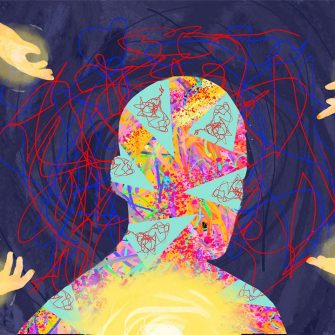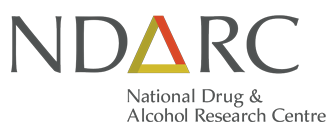Scholarships at NDARC

Take your success to the next level
NDARC at UNSW offers postgraduate scholarships aimed at supporting the next generation of leaders in alcohol and other drug research. These scholarships provide financial assistance, access to top-tier resources, and the opportunity to collaborate with leading experts in the field. We invite you to explore the information below for more details.
Scholarships at NDARC
At NDARC, UNSW, our scholarships are key to helping you reach your research goals. UNSW offers scholarships funded by the Australian Government, UNSW, and the Centre. The first step in applying for a scholarship at NDARC is to determine your eligibility for pursuing a postgraduate degree within the Centre's research areas. Before continuing with your application, ensure your qualifications, experience, and research interests align with NDARC's focus areas listed below.
Scholarship award amount and duration
We offer a competitive scholarship stipend and support package. The scholarship awarded to full-time HDR candidates is $40,000 per annum, tax-exempt. The PhD scholarship duration is three years (with the possibility of a 6-month extension). The duration of the MRes and MPhil scholarship is two years. In addition, up to $10,000 is available for professional development activities and $5,000 for associated research costs across the period of candidature. There are also opportunities for HDR candidates to be offered additional paid employment to work on priority projects across the Centre.*
* The funding from NDARC is contingent upon your admission and your UNSW Scholarship assessment results.
Applications now open
NDARC PhD, MRes, and MPhil applications are open year-round. Several NDARC projects are currently seeking HDR candidates; please visit HDR scholarship projects for more information. Please see the application process below. If you have any questions or require further information about NDARC’s postgraduate research programs, please email ndarc.hdr@unsw.edu.au.
Research areas
NDARC offers scholarships to postgraduate students who wish to undertake higher-degree research (HDR) on drug—and alcohol-related projects that align with NDARC’s core work plan areas.

Epidemiology and emerging trends
Since the 1990s, NDARC’s internationally renowned epidemiological research quantifies and characterises alcohol and other drug use and harms in Australia and identifies emerging trends to provide a framework for policy responses and interventions that improve health and wellbeing. Our epidemiological work positions NDARC as a compass for health responses. The cornerstone of our program is the world-leading Drug Trends monitoring system.

Prevention and early intervention
Our research on early intervention programs aims to identify, develop, and evaluate effective strategies to prevent alcohol and other drug-related harms. Our researchers collaborate with stakeholders across the sector to share knowledge and address current and emerging issues.

Mental and physical comorbidities
Our research identifies and understands mental and physical comorbidities impacting people who use alcohol and other drugs, driving evidence-based recommendations to advance screening, detection, interventions, and implementation of effective and efficient treatment services.

Treatment and harm reduction
Collaborating with clinicians and academics world-wide, NDARC’s treatment and harm reduction research enables optimal clinical practice and improves health outcomes. We are committed to developing new and innovative responses to reduce alcohol, tobacco and other drug problems, and evaluating existing programs in real-world settings and specific populations.

Drug policy
Our research evaluates policy in law, policing, harm reduction, prevention, and treatment. Drawing on expertise across various disciplines (e.g., criminology, drug and alcohol policy, health, and social policy), our research identifies responses that can reduce drug-related harms and build evidence to support a better understanding of illicit drug markets and drug-related costs.

Criminal justice system
Our program encompasses research on the health of people in contact with the criminal justice system, considering opportunities for therapeutic outcomes in these settings and responses that can reduce drug-related harms. We provide research evidence to support integrated law enforcement, health, and social policy and evidence to support improved treatment retention rates.

Priority populations
We partner with key population groups to ensure our research extends across and addresses the needs of diverse and priority populations. Through this work, we aim to understand better alcohol and other drug use and harms among these groups and identify tailored approaches to enhance health and wellbeing.

Big data and new technologies
We use large-scale data and new technologies to support research across all our activity areas. Through routinely collected data spanning vital statistics, health service use, health registries, social services use and criminal justice system contacts, we access multiple data collections linked at the person level to provide the most accurate picture of use and harms.
HDR Application Process
A research degree is called a ‘higher degree by research’ (HDR) and includes a Doctor of Philosophy (PhD) and a Master's by research (MRes)/Master of Philosophy (MPhil).
- How to apply
- HDR Academic Calendar
-
Full-time, part-time, domestic, and international applicants can apply for a higher degree research (HDR) program. Eligibility for HDR study requires a strong academic record and prior research experience. Before applying, you must meet specific eligibility criteria. To qualify for the scholarship, applicants must fulfil the following conditions:
- Program eligibility: Meet UNSW requirements for enrolment in a Higher Degree Research Program. Click on the link below for your preferred program to view the eligibility criteria: Doctor of Philosophy (PhD), Master by Research, Master of Philosophy. Experience in the drug and alcohol sector or related fields, such as psychology, public health, criminology, sociology, medicine, pharmacology, health economics, and biostatistics, is also desirable.
- Visa requirements: Meet residency and visa requirements.
- Enrolment requirements: Not be concurrently enrolled in a separate HDR program at either UNSW Sydney or another university during the tenure of the NDARC-based candidature.
- International students: International students must consult UNSW’s guidelines for eligibility and tuition scholarship options for international students and complete the Financial Declaration Form, and, if required, submit evidence of your capacity to fund all living costs, fees and other associated costs. You must demonstrate that you can financially support yourself (and any dependants) for the duration of your studies and that you are a Genuine Student (GS). This may be through applying for a UNSW Research Scholarship for international students, an alternative scholarship or sponsorship (provided by a source external to UNSW), or through self-funding.
- School enrolment: Successful candidates must enrol in the HDR program through the School of Public Health and Community Medicine (SPHCM) in the Faculty of Medicine. Successful applicants will receive support via NDARC's HDR training and development program. Knowledge of UNSW’s EEO/AA principles and policies will be required.
-
Finding a supervisor with compatible research interests and working styles is critical to your success as a postgraduate research degree candidate.
There are two ways to do this:
- Select a project from the current opportunities, opens in a new window listed (these already have supervisors attached).
- Search for a supervisor with content and/or methodological expertise in your area of interest
If you would like to express interest in a research project advertised on our website, please complete the expression of interest form, or email the primary supervisor with a copy of your CV and academic transcript(s). Their contact details and any additional requirements are listed in the project description.
-
Before submitting a formal application, all interested applicants are invited to complete this application form.
Your expression of interest will be reviewed, and the selection committee will contact you to discuss progress with your formal application.
You will then need to complete the Research Plan form. This will include an:
- Outline of how you are eligible for admission to the program;
- Description of your capability to carry out high quality research;
- Rationale for why you chose this project and supervisory team; and
- Description of your proposed research project.
See the Document Submission Guidelines for more information.
-
Interviews: Applicants must be available for interview
Program start: Applicants can commence in any term of UNSW’s academic calendarThis advertisement does not intend to limit the scope of possible HDR research projects or enrolment options but to highlight the most critical aspects of NDARC’s HDR program. The aspects mentioned above may be negotiated within UNSW’s HDR policies and procedures.
HDR Academic Calendar
The HDR Academic Calendar comprises four terms, which provide flexibility for HDR candidates to reflect the ongoing nature of a research candidature.
Below are the HDR Academic Calendar dates for this year.
Are you already enrolled in a UNSW HDR program? Visit the HDR Hub for the latest information on candidatures, scholarships, events and resources for HDR candidates.
-
Term
New Enrolments Commence
Term Start Date
Term Census Date
Term End Date
Summer Term
4 November 2024
9 December 2024
12 January 2025
16 February 2025
Term 1
6 January 2025
17 February 2025
16 March 2025
1 June 2025
Term 2
21 April 2025
2 June 2025
29 June 2025
14 September 2025
Term 3
4 August 2025
15 September 2025
12 October 2025
14 December 2025




